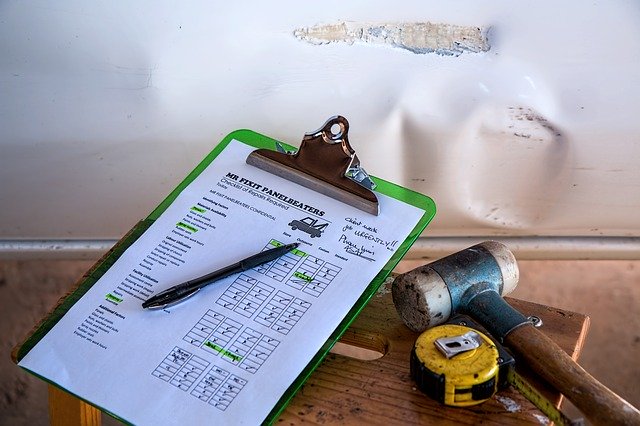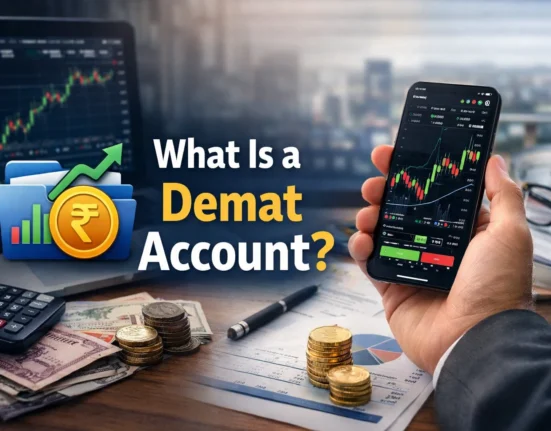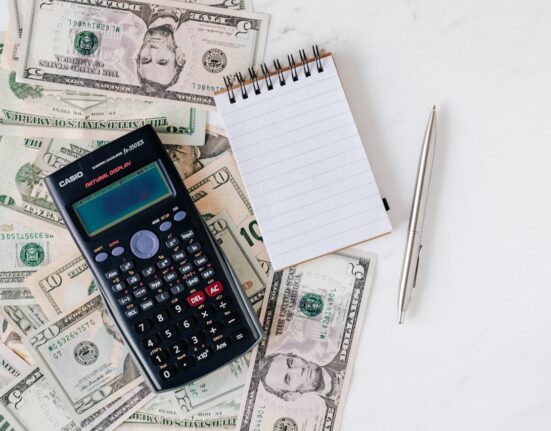Demat or Dematerialization Account
In the digital stock market trading system, demat account refers to an automated and electronic safe to digitally hold your financial securities. Just like a bank account, it protects your securities from physical theft, damages, and destruction. It deals with numerous instruments like stocks, bonds, government securities, money market instruments, mutual funds, and exchange-traded funds. It holds your securities under two major depositories of Bombay Stock Exchange (BSE) and National Stock Exchange (NSE). Brokers register under either National Securities Depository Limited or the Central Depository Service (India) Limited.
Following are some features of a demat account:
- Demat accounts act as a digital storehouse of financial securities such as stocks and other instruments.
- Brokers offer opening of accounts with low demat charges.
- Demat account protects your securities from physical issues, theft, wear and tear, loss of prints, and other destructions.
- It ensures fast delivery of securities from seller to buyer.
- Due to digital holding, demat accounts reduce physical space requirements. Now financial instruments are kept in big databases of depositories.
To trade in the stock market, you require a demat account. You can open your demat account with the following process:
Demat account opening procedure
Many brokerage firms/depository participants offer online demat account opening facilities. You can open your account within a day by following some simple steps. These are simple steps to open a demat account:
Search and select the best broker/depository participant
To get any service, you analyze the services of providers along with their charges for the same. Accordingly, you should make a list of different brokers and analyze their services. Various parameters can be used to evaluate their services like account activation period, documents required for demat account, initial charges, market analysis facility, stock recommendations, and other support.
You can compare different brokers on these parameters, and select brokers with low demat charges and high-quality services.
Fill application form with selected broker
First step to open an account with a broker is filling an application form. It asks you to fill in your personal information as well as some other relevant details. This steps allows you to set your protected ID and password that can be used later on.
Uploading documents required for demat account
You need several documents to verify your identity. Brokerage firms ask you to upload these documents in digital format. The relevant documents are:
- ID proof documents: PAN card, Aadhar card, and a valid passport size photo (Some brokers demand real-time photographs).
- Address proof: Voter ID, passport, driving license, and other residential proofs.
- Income-related documents: Annual salary receipts, ITR receipts, 6-month bank statements (if you don’t have income source, bank statement is sufficient).
- Bank details: Account number, bank passbook.
These are some important documents that you must have with you while opening an account. Successful document uploading leads to the next step of document and profile verification.
KYC verification and account activation
Brokers have their KYC verification teams that evaluate your documents and uploaded information. This process usually takes a day. Successful verification activates your account and provides you with a unique investor ID. Your account can be registered with any of the depositories of stock exchanges. With the provided investor ID, you can trade in any stock, mutual funds, and other securities.
These are some steps to assist you to open a demat account. While opening your account, demat charges play an important role. Demat charges include initial expenses, annual maintenance fees, per transaction charges, and other fees.
Charges to open Demat account
Indian brokers offer demat services with different costs and fees. Some broking houses offer free demat accounts, while some demand low service charges. Per transaction fees are usually similar among brokers.
You should keep in mind the cost structure of service providers while opening your demat and trading account in order to start digital trading in the stock market.
Among numerous benefits and functions of an online demat account, its primary function is to store the financial securities you bought in the stock market electronically that makes the online trading process secured, faster and convenient.
Demat Account Meaning
A demat account is a repository for your financial securities. You can think of it as a bank account for your securities in the stock market. It increases the accessibility of your securities as you can access your online demat account from anywhere in the globe.
Functions
As per the mandates by the SEBI, no company can issue its shares in paper form; therefore, it is mandatory to open a demat account. Demat accounts functions include:
- Holding securities electronically: You receive digital securities reflected in your demat account when you invest in the stock market. There are no paper-based securities in the current online trading system.
- Security of your investments: Demat accounts protect your shares against any unauthorized transfer. You can hold your shares as long as you need to meet your financial goals. It will be safe in your demat account from any loss or damage, unlike physical share certificates.
- Quick transfer of shares: Demat accounts facilitate smooth and quick transfer of share ownership from one person to another through a secured process.
- Easy Transmission: In case of the demise of the shareholder, the beneficiary or nominee can receive those shares in their demat account without any hassle.
- Dematerialization/Rematerialization: It is the function of a demat account to change the format of share certificates from physical to digital or vice versa.
Thus, you can maintain securities in the demat account effortlessly and save yourself from the risks associated with paper-based securities like damage, torn, theft, or loss of certificates.






